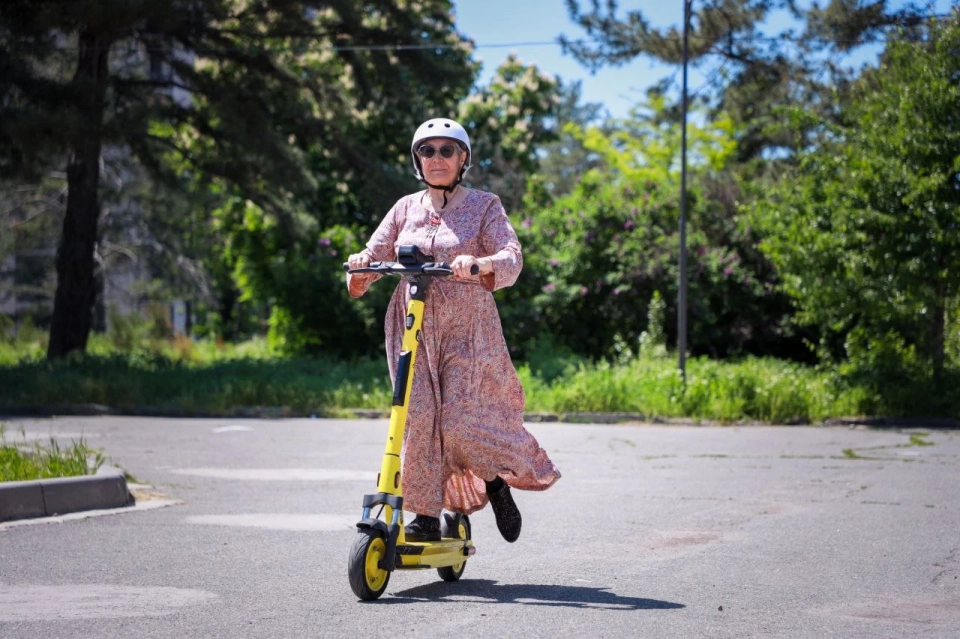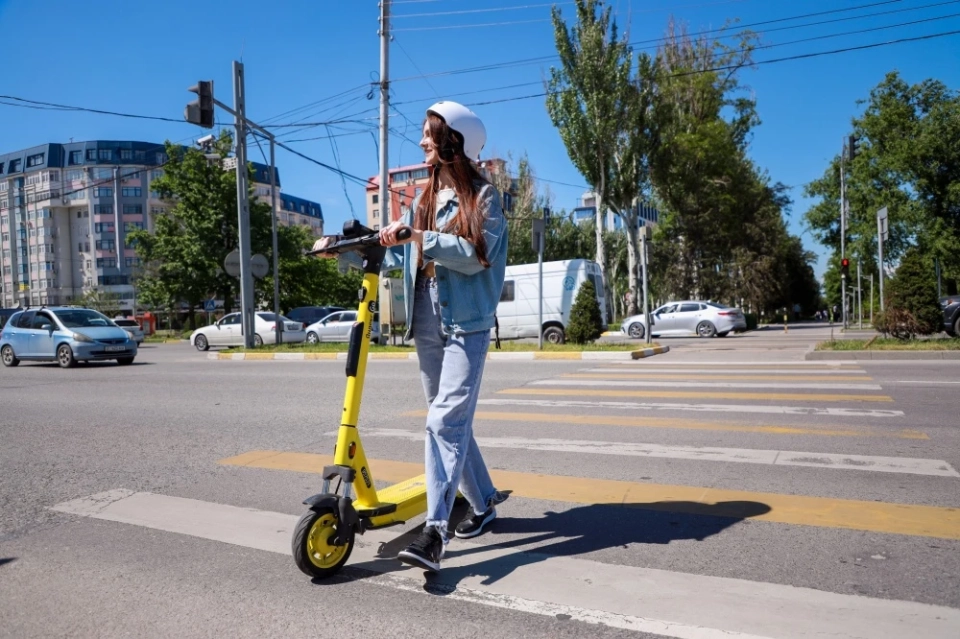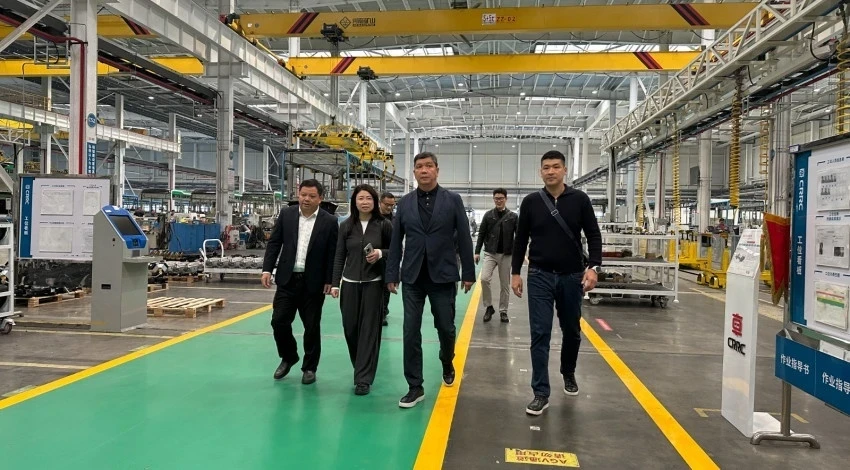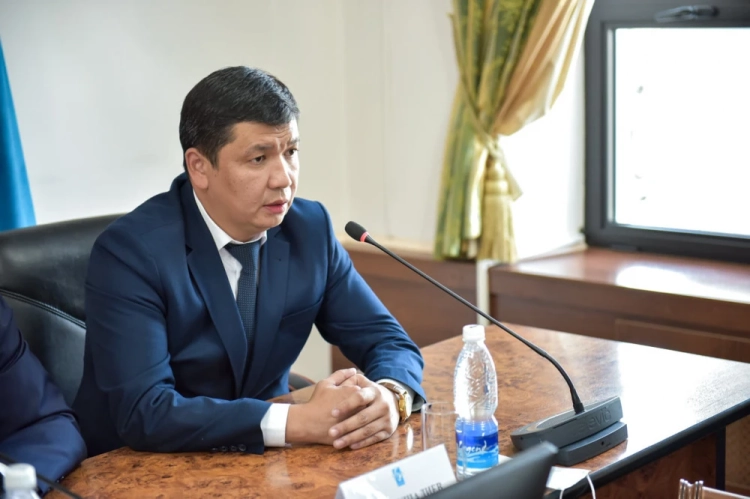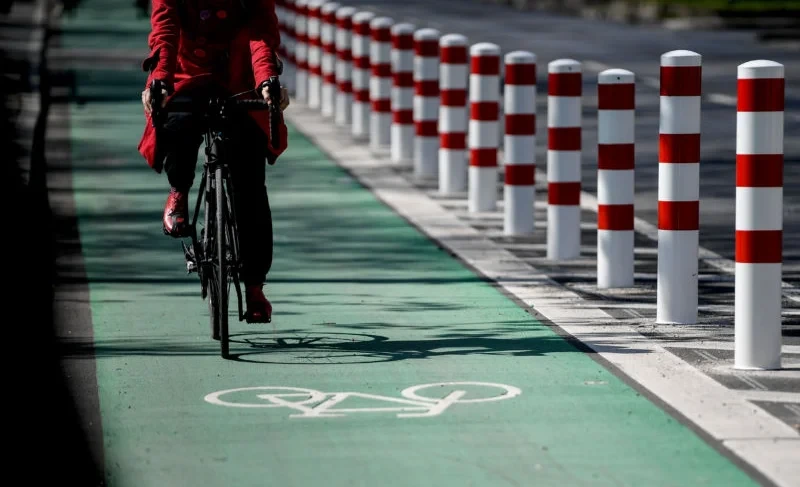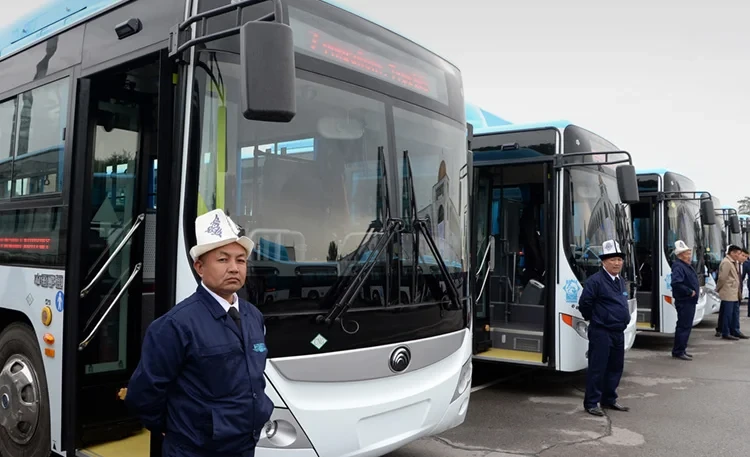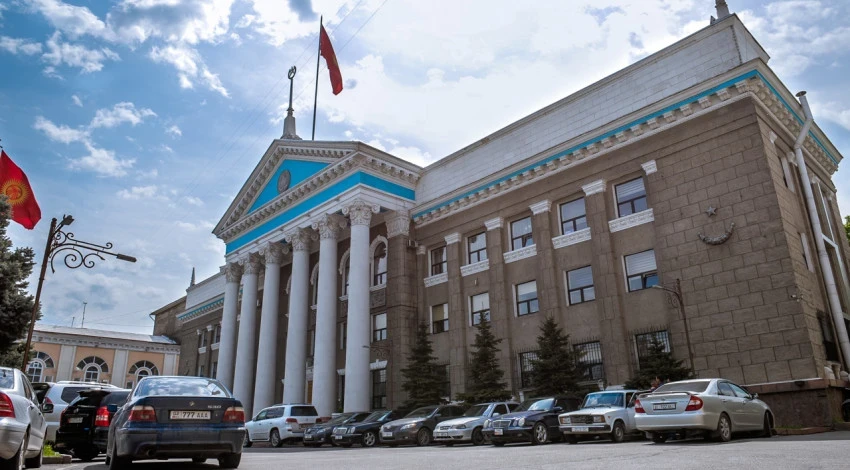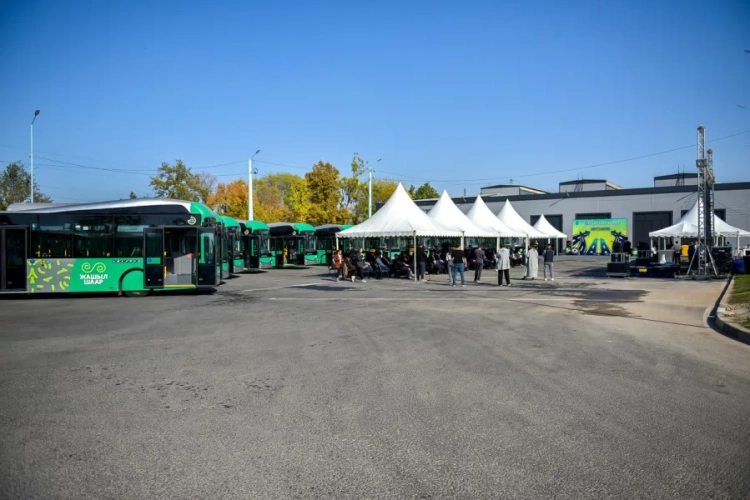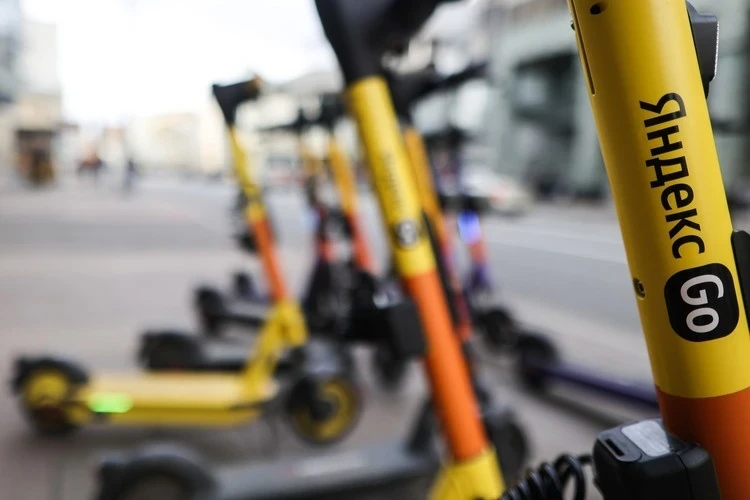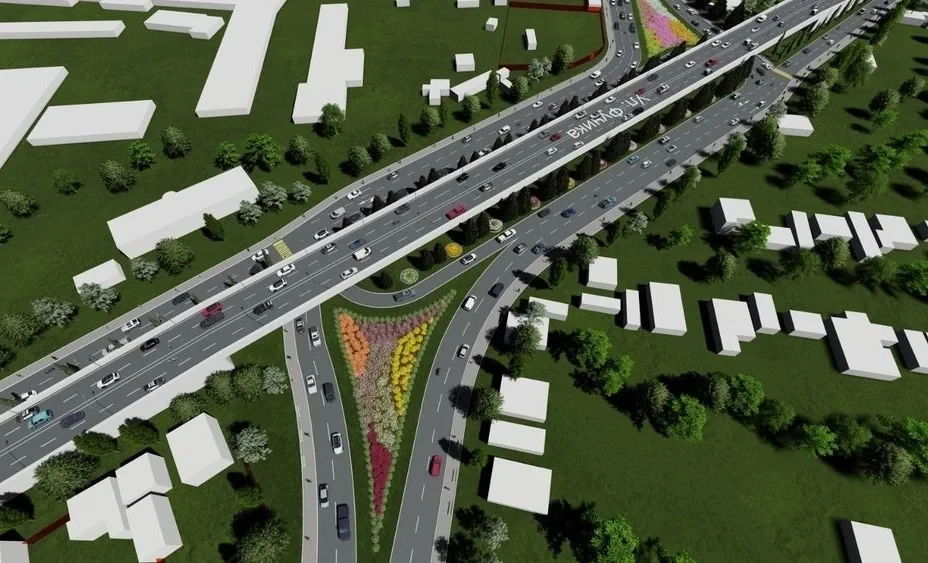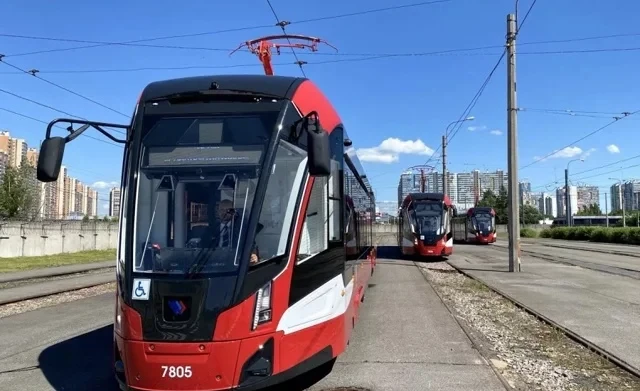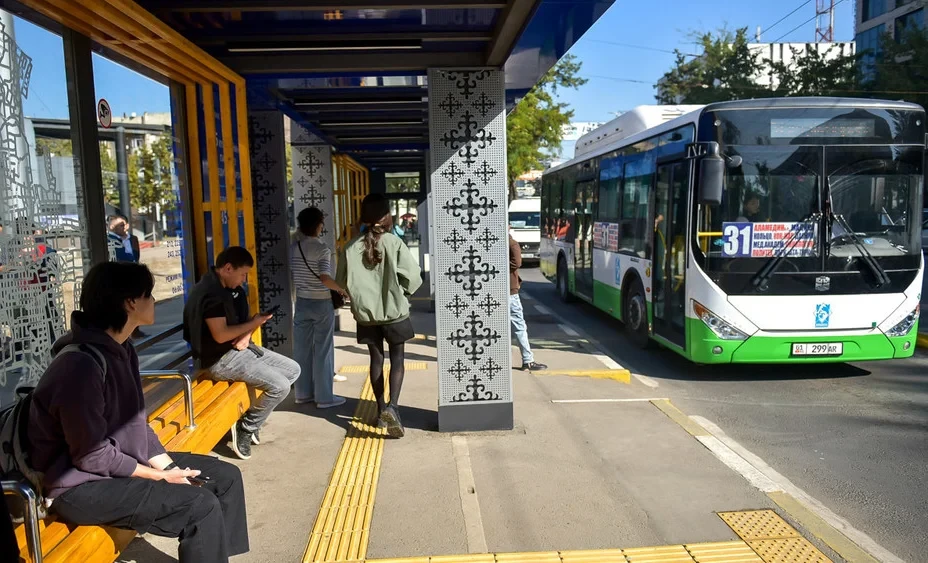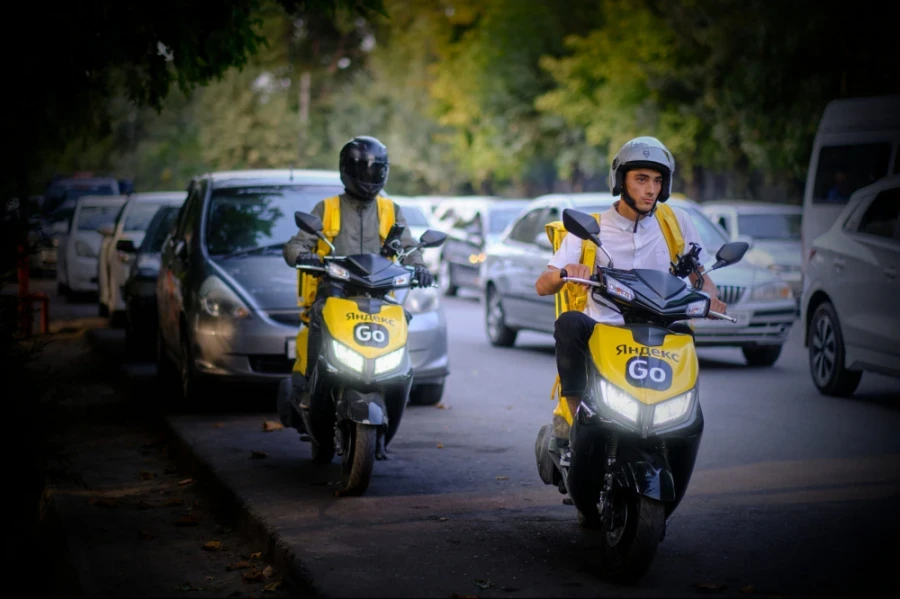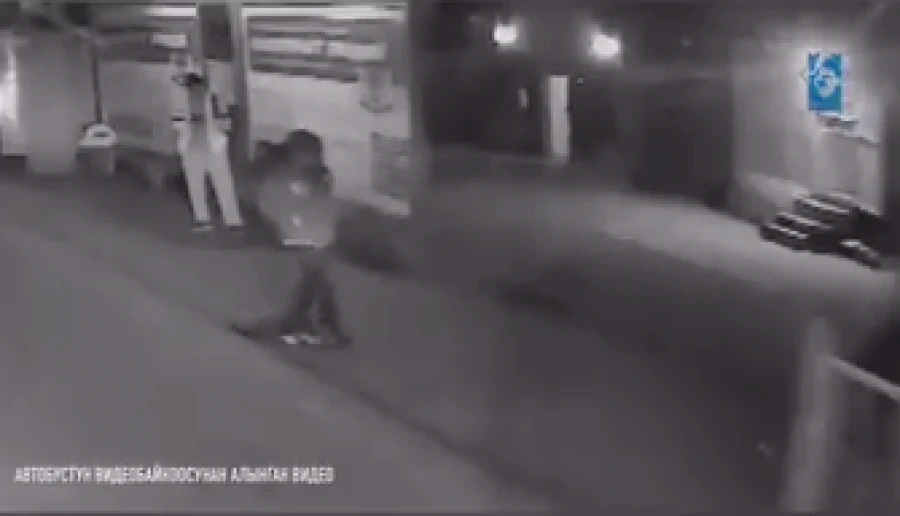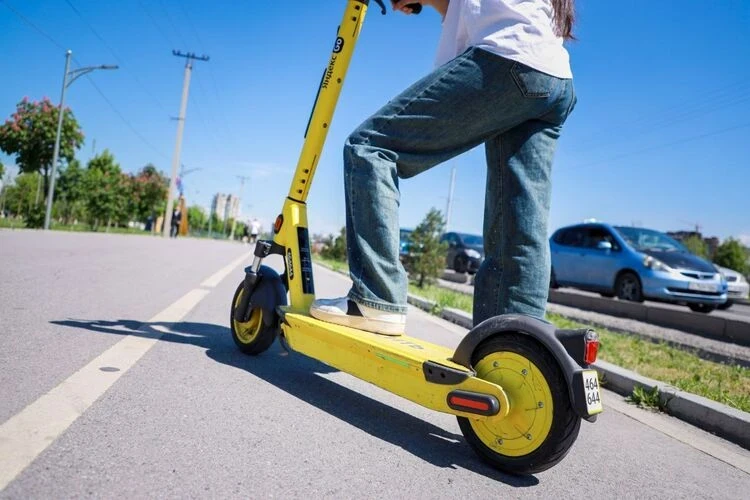
A meeting of media representatives was held in Bishkek with Tilek Suimanov, the head of "Yandex Kyrgyzstan." He shared information about the transformation of the city's transport culture, the implementation of technologies that enhance road safety, and the company's proposals for improving urban infrastructure.
Convenience and ecology in one bottle
Scooters have become an integral part of the capital's transport system. The head of the municipality, Aibek Junushaliev, confirmed that they do not plan to disappear from the urban landscape anytime soon.
According to a personal mobility specialist, scooters represent a full-fledged mode of transport that helps reduce road congestion, decrease harmful emissions, and save users' time.
In Bishkek, 2,000 scooters are in operation, which are used for 250,000 rides each month.
“This means that 250,000 times people choose a scooter instead of a personal car or taxi. It does not pollute the environment, eases the burden on roads, and allows for quicker travel to necessary places. Over the season, users saved about 233,000 hours,” noted Tilek Suimanov.
According to statistics, in 70% of cases, a scooter is used as a means of transportation rather than for entertainment. This indicates that for most city residents, it has become a convenient way to get to work or school without unnecessary stress.
Safety as a priority
Tilek Suimanov noted that before starting a ride, each user is required to undergo training through the app, which explains traffic rules, permissible speed, and safety measures. The company also organized a Safe Scooter Riding School, which took place in August and received positive feedback.
We explain why riding two people on a scooter is not allowed and how to safely navigate among pedestrians. Interest in this project has been high, so we plan to conduct training more frequently.
Tilek Suimanov
In Bishkek, 12 zones have been designated where scooter access is prohibited—the device automatically stops in these areas. Most of them are located near strategically important sites. Additionally, in 17 zones, the speed is limited to 15 kilometers per hour, such as on Erkindik Boulevard.
Photo 24.kg
“Scooters are equipped with geofencing technologies that help determine where it is safe to go faster and where caution is advised. We are open to collaborating with the city hall to expand such zones,” added Tilek Suimanov.
Infrastructure development
The company representative spoke about future plans for developing infrastructure for personal mobility devices (PMDs), current initiatives, and opportunities for collaboration.
If the city hall agrees, we can create 300 pilot parking areas in designated locations so that users know where to leave their scooters.
Tilek Suimanov
He noted that the company is open to dialogue with government agencies and suggested that the city administration consider creating a single micromobility operator.
“Such an operator could coordinate the activities of different companies, establish micromobility standards, and promote a culture of responsible PMD use. Specially trained staff—scouts—will identify cases of improper parking and monitor cleanliness in the city. A similar project has already been successfully implemented in Kazakhstan in collaboration with the Almaty akimat,” said Tilek Suimanov.
Photo 24.kg
The idea of creating a Telegram bot is also being discussed, where residents of the capital can send photos or videos of violations related to scooter use. These messages will be forwarded to the city hall or the traffic police for further action.
Additionally, a system for verifying users' ages is being developed, similar to that used in taxis, to prevent minors from using scooters.

